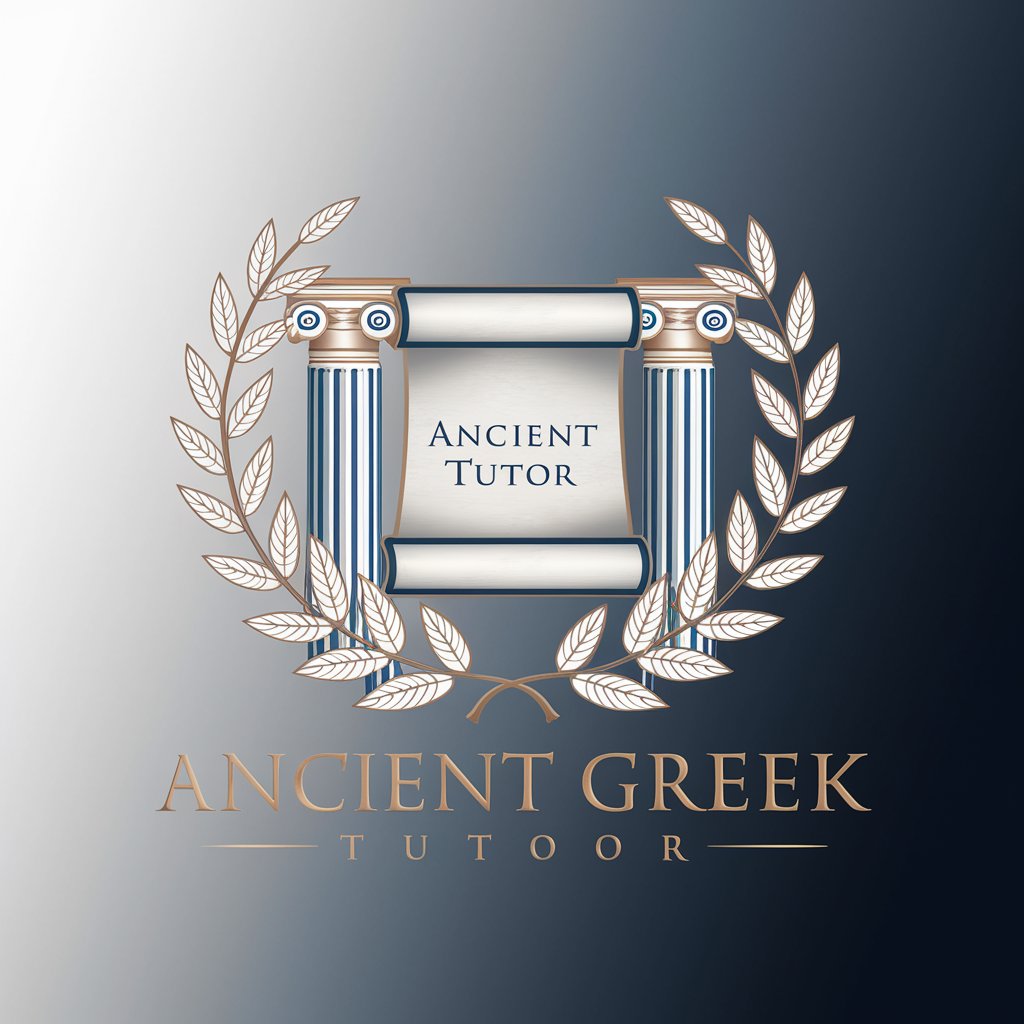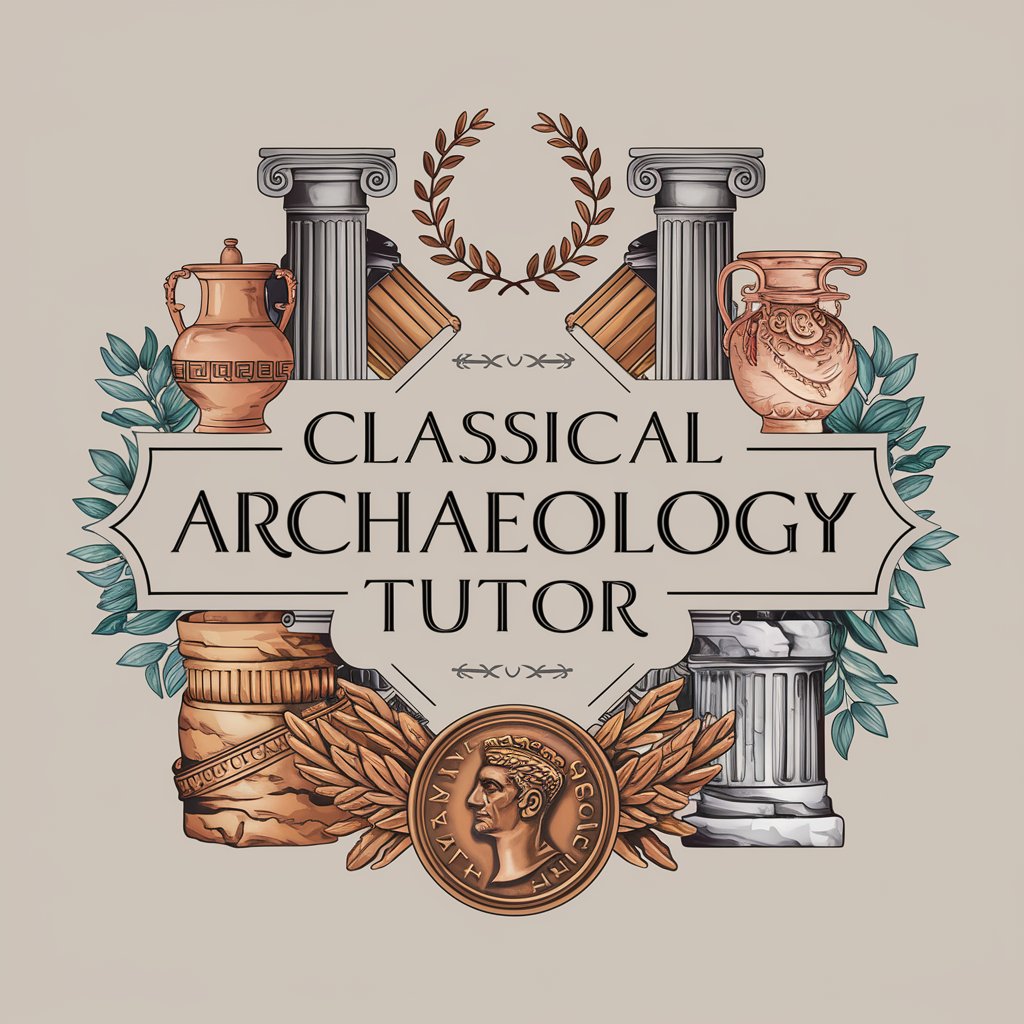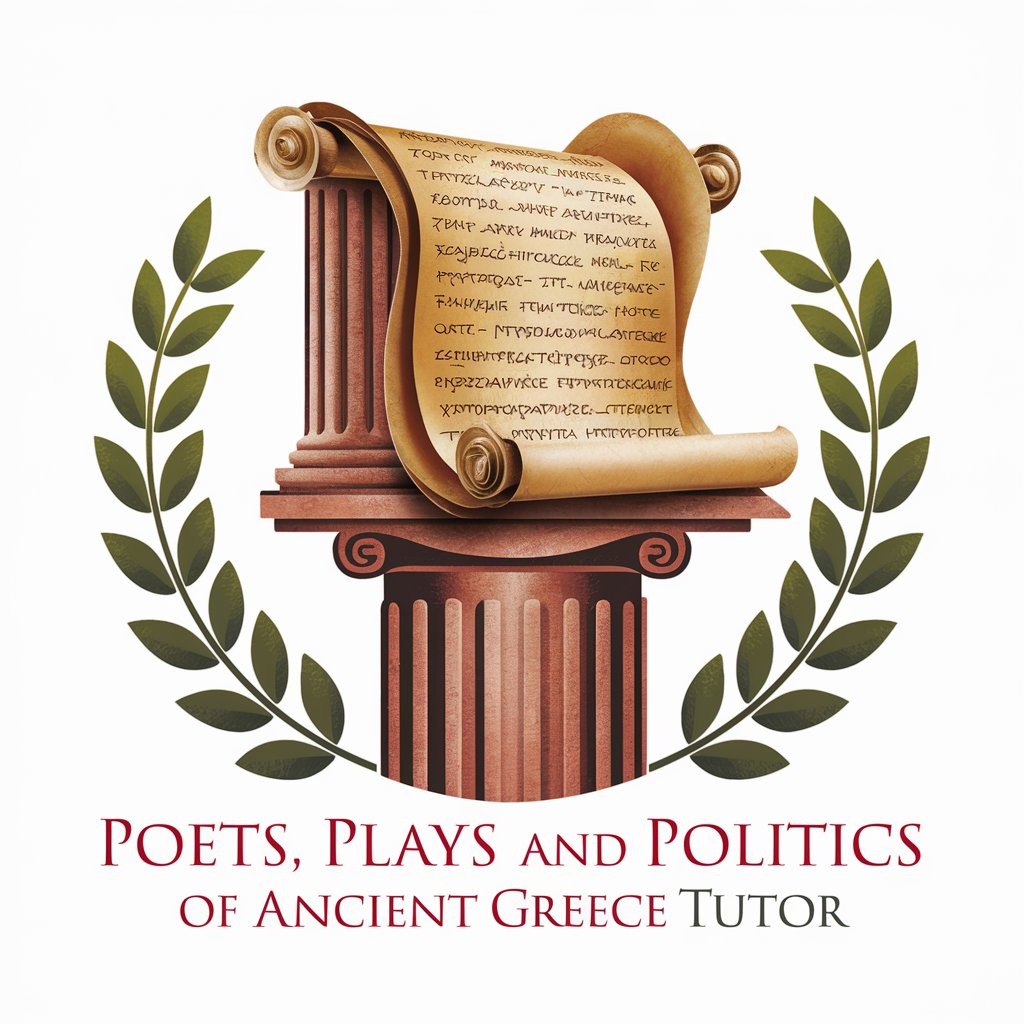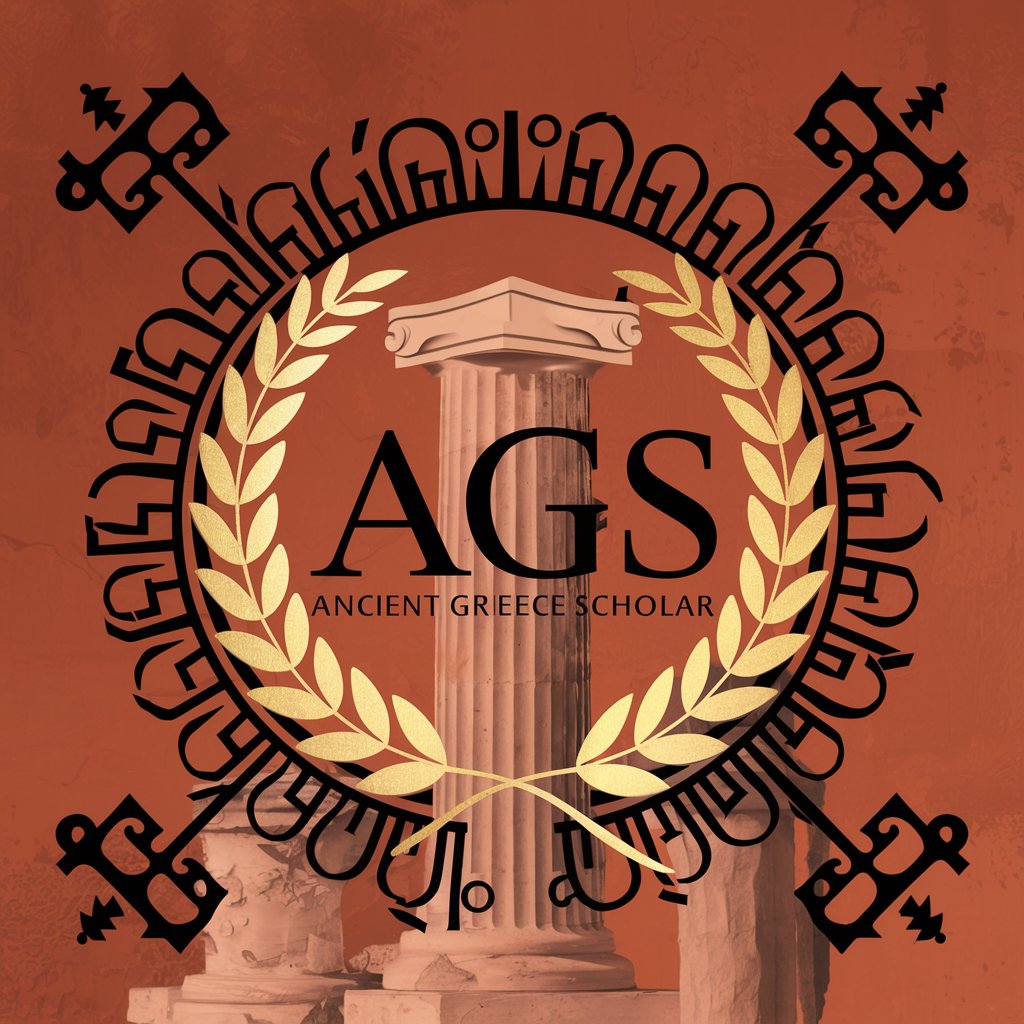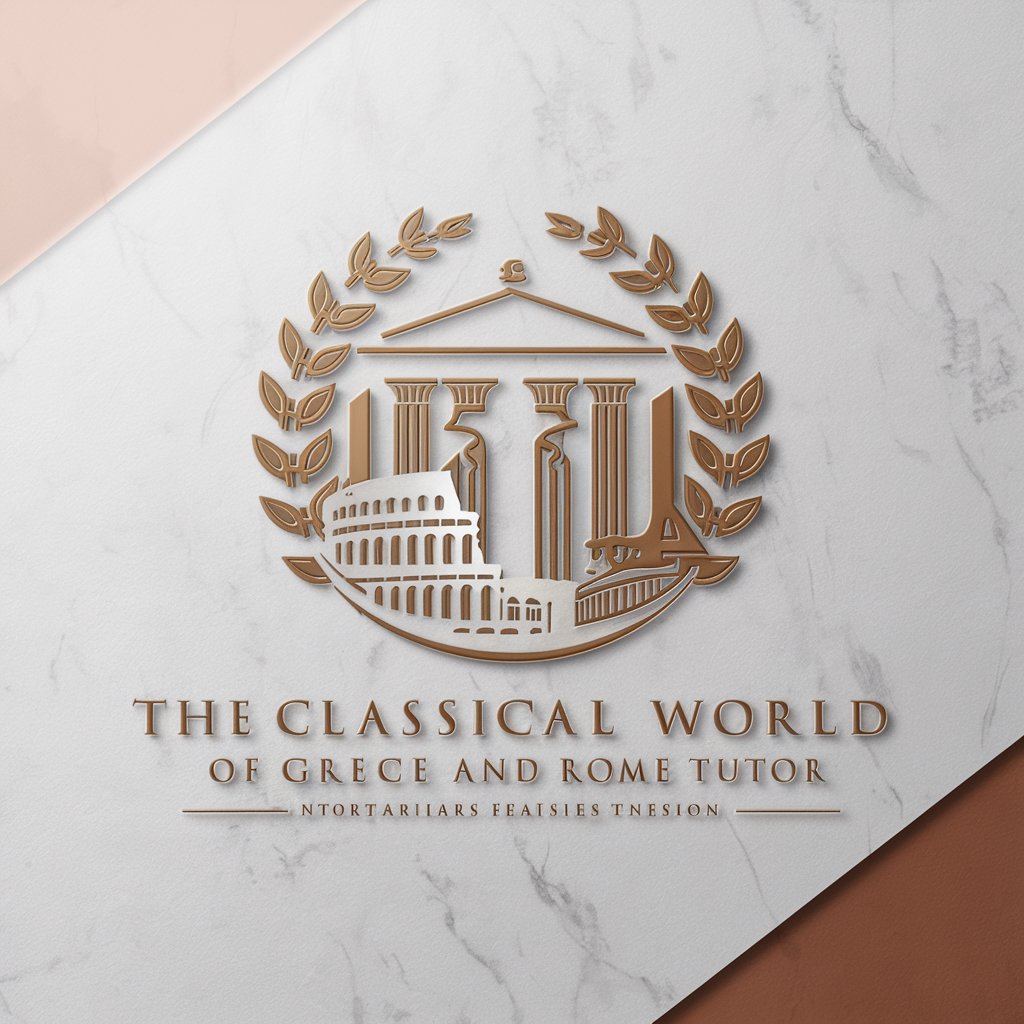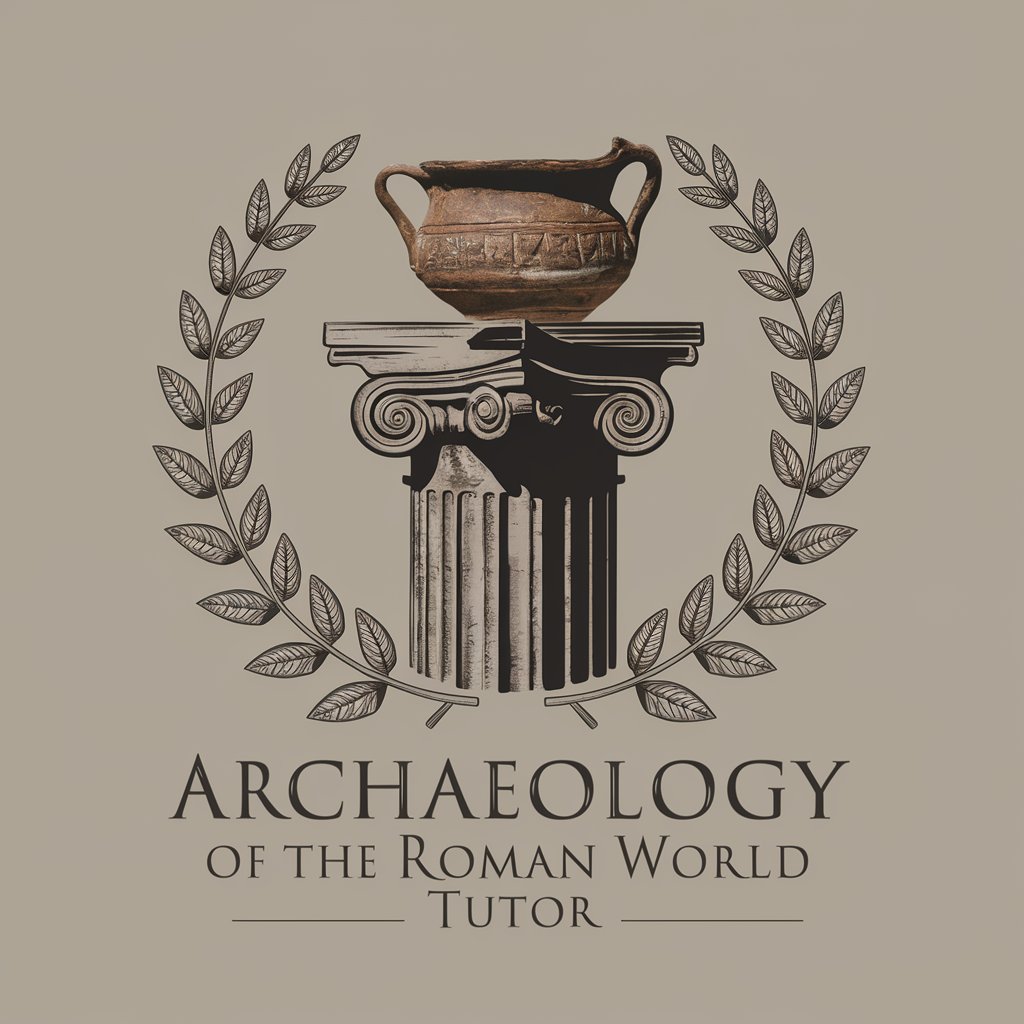
Archaeology of Ancient Greece Tutor - Ancient Greece Archaeology Expert
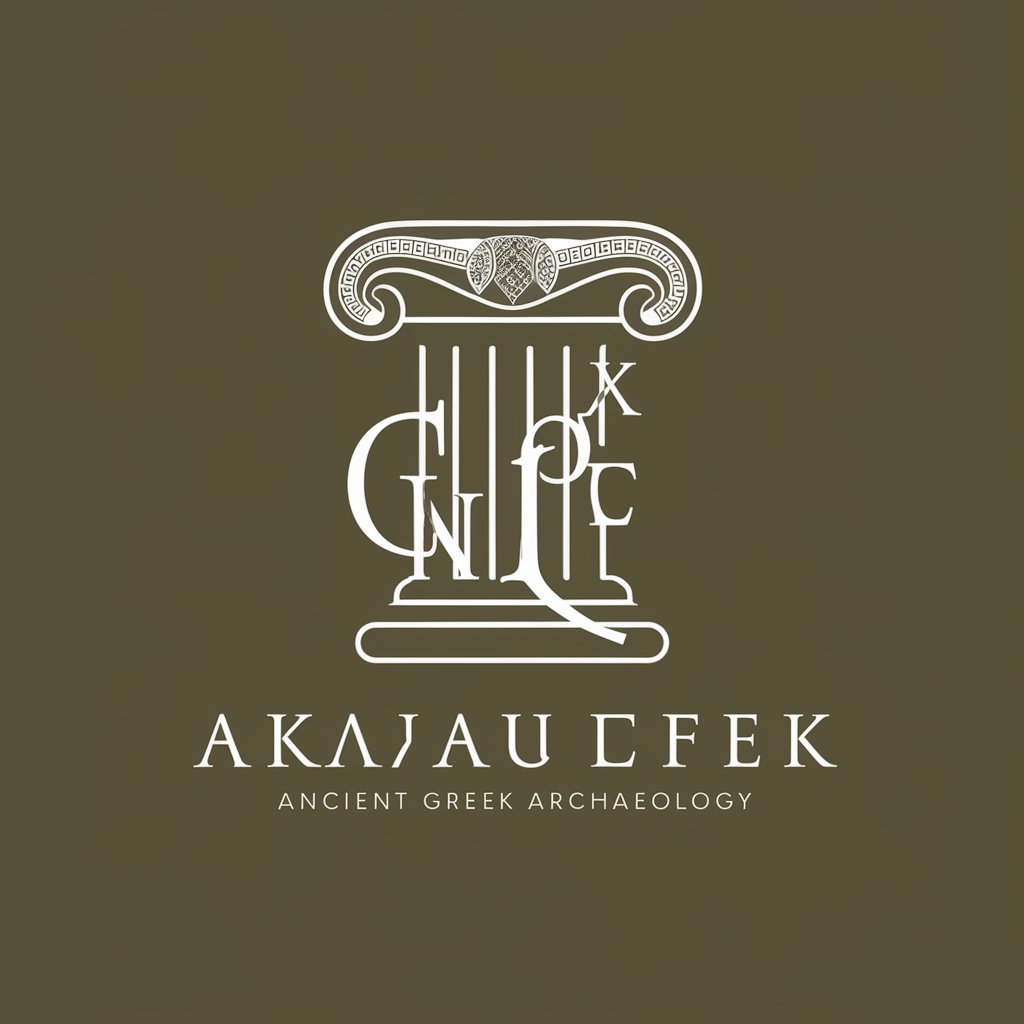
Welcome! Let's explore the wonders of Ancient Greek archaeology together.
AI-powered insight into Greek archaeology
Explain the significance of the Minoan civilization in the context of Greek archaeology.
Describe the development of urban planning in ancient Greek city-states.
Discuss the evolution of Greek ceramic styles from the Geometric to the Hellenistic periods.
Analyze the architectural features of the Parthenon and their symbolic meanings.
Get Embed Code
Overview of Archaeology of Ancient Greece Tutor
The Archaeology of Ancient Greece Tutor is a specialized AI tool designed to provide expert-level tutoring and guidance on the archaeology of ancient Greece, spanning from the Minoan civilization to the era of Constantine. This tool encompasses a broad spectrum of knowledge areas including urban planning, architecture, sculpture, painting, ceramics, burial customs, religious and secular artifacts, epigraphy, and numismatics. Its design purpose is to assist upper division and graduate students in comprehensively understanding the material culture of ancient Greece, offering insights into chronological frameworks, analytical methodologies, and the historical development of classical archaeology in Greece. For example, a student working on a thesis about Minoan pottery could use the tutor to delve into detailed discussions about pottery styles, production techniques, and their significance in Minoan society, or a graduate student might explore the evolution of urban planning in Hellenistic cities, analyzing the impact of Alexander the Great's conquests on urban development. Powered by ChatGPT-4o。

Core Functions of Archaeology of Ancient Greece Tutor
Educational Support and Detailed Explanations
Example
Explaining the significance of the Antikythera Mechanism and its role in ancient Greek scientific achievement.
Scenario
A student studying ancient Greek technology seeks to understand the complexities of the Antikythera Mechanism, its discovery, and implications for our understanding of ancient Greek astronomy and mechanical engineering.
Analytical Method Guidance
Example
Guiding through the process of pottery analysis, from stylistic classification to chemical composition.
Scenario
A graduate student preparing a dissertation on ceramic trade in the Aegean during the Late Bronze Age requires assistance in identifying pottery styles, understanding production techniques, and interpreting the results of compositional analysis to trace trade networks.
Historical Contextualization and Chronology
Example
Outlining the chronological development of Greek sculpture from the Archaic to the Hellenistic periods.
Scenario
An undergraduate student needs to place the development of Greek sculpture in a wider historical and cultural context, understanding the evolution of styles, techniques, and themes from the Archaic smile to the realism of Hellenistic art.
Target User Groups for Archaeology of Ancient Greece Tutor
Upper Division Undergraduate Students
Students engaged in advanced studies in archaeology, classics, or history who require a deeper understanding of Greek material culture, methodologies, and historical contexts. They benefit from specialized knowledge to enhance their academic projects, papers, or exam preparation.
Graduate Students and Researchers
Graduate students working on theses or dissertations, as well as researchers looking for detailed analyses, interpretation frameworks, and specialized knowledge in the field of ancient Greek archaeology. They utilize the tutor for in-depth research support, methodological guidance, and scholarly discourse.
Educators and Lecturers
Academic professionals teaching courses related to ancient Greece who seek to supplement their curriculum with in-depth material or need quick, authoritative references to support their lectures, discussions, and exam materials.

How to Use Archaeology of Ancient Greece Tutor
1
Start by visiting a platform offering a trial without the need for login or ChatGPT Plus.
2
Choose the Archaeology of Ancient Greece Tutor option to focus your learning on Greek material culture from the Minoans to Constantine.
3
Prepare your specific questions or topics of interest related to ancient Greek archaeology, ensuring they are clear and concise.
4
Engage with the tutor by inputting your questions. Utilize the detailed, expert responses to enhance your understanding and study.
5
For an optimal learning experience, explore various aspects such as architecture, sculpture, or numismatics, and apply this knowledge to your academic or research projects.
Try other advanced and practical GPTs
Hollywood Does Rome Tutor
Explore Ancient Rome through Hollywood's Lens
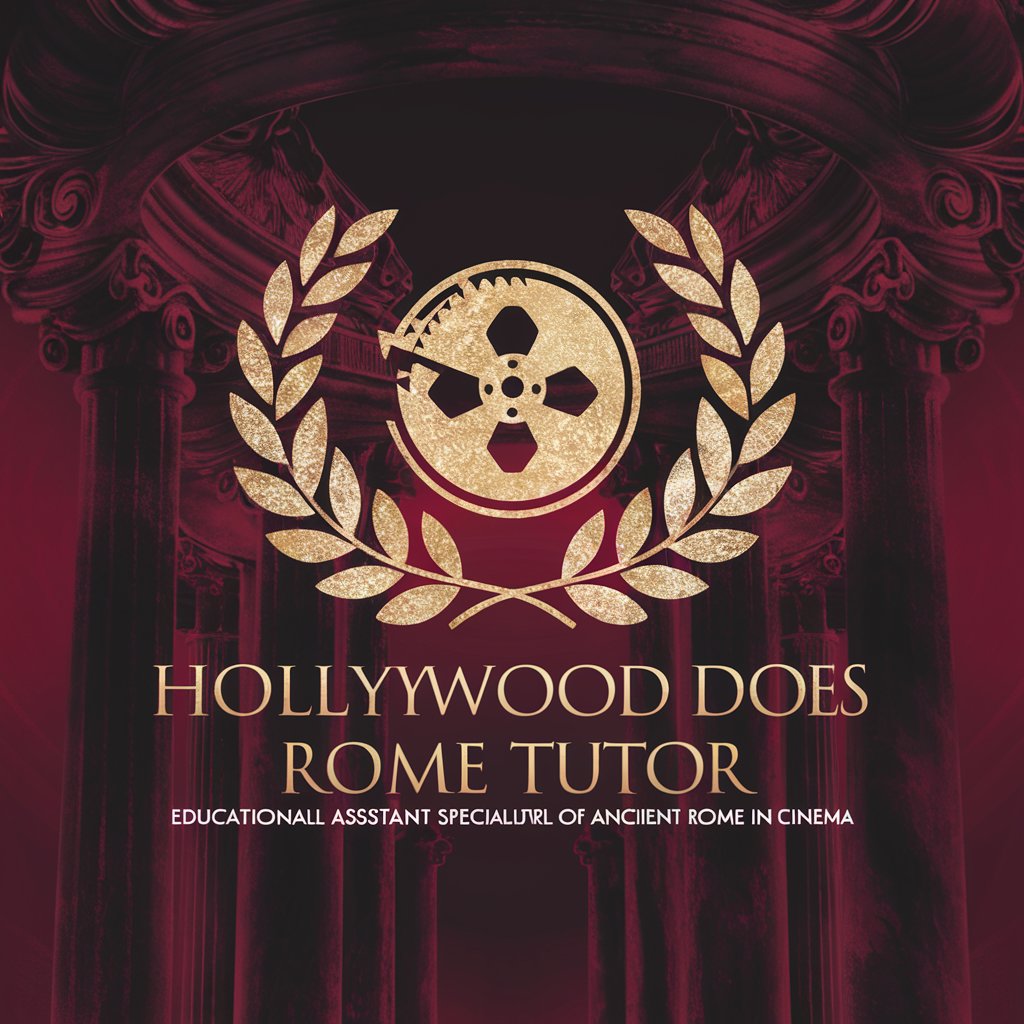
Car Insurance Wichita, KS
AI-Powered Car Insurance Guidance

Competitor Analyzer
AI-powered insight into competitive edge

GPTとポーカーで勝負!
Master Poker with AI-powered Gameplay
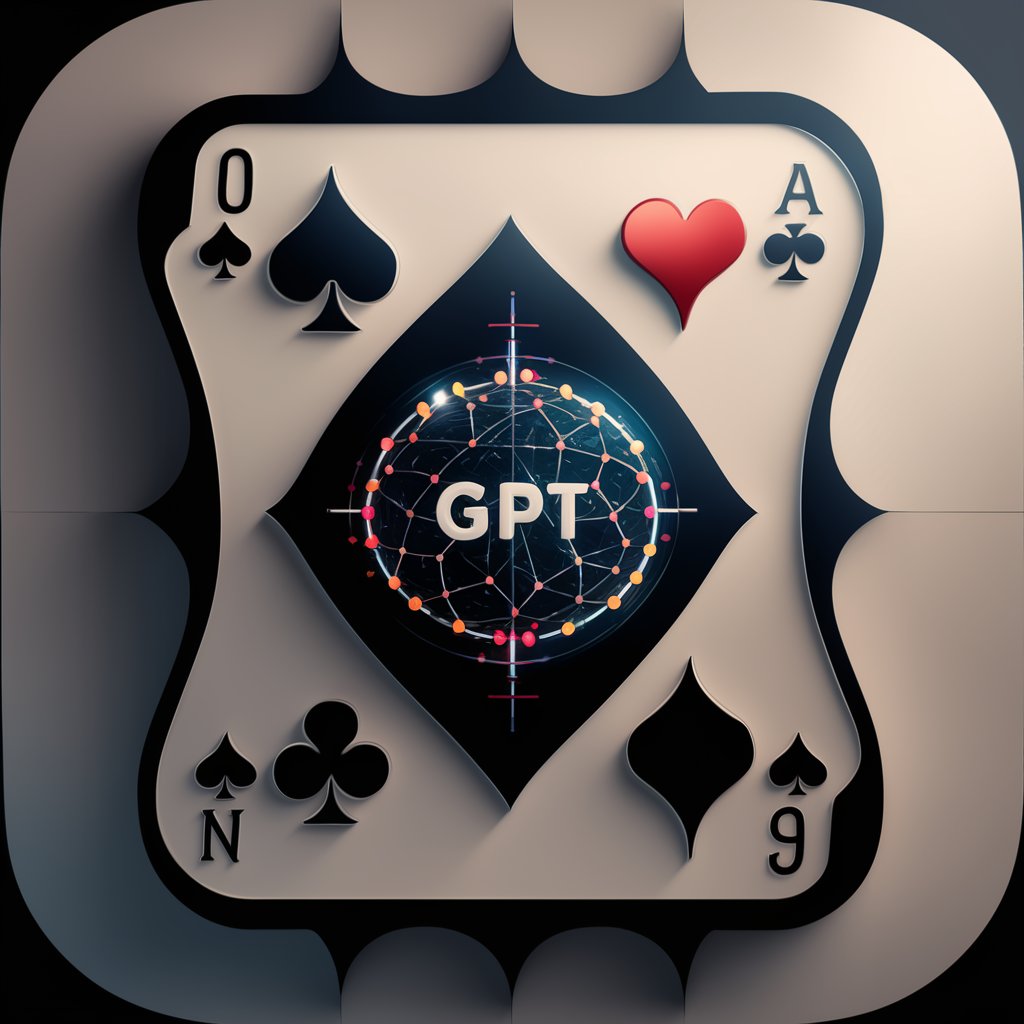
Locksmith New Orleans, Louisiana AI Assistance
Unlocking Solutions with AI

Mystery of Roger Ackroyd: A Hercule Poirot Quest
Solve mysteries with AI-powered detective skills.
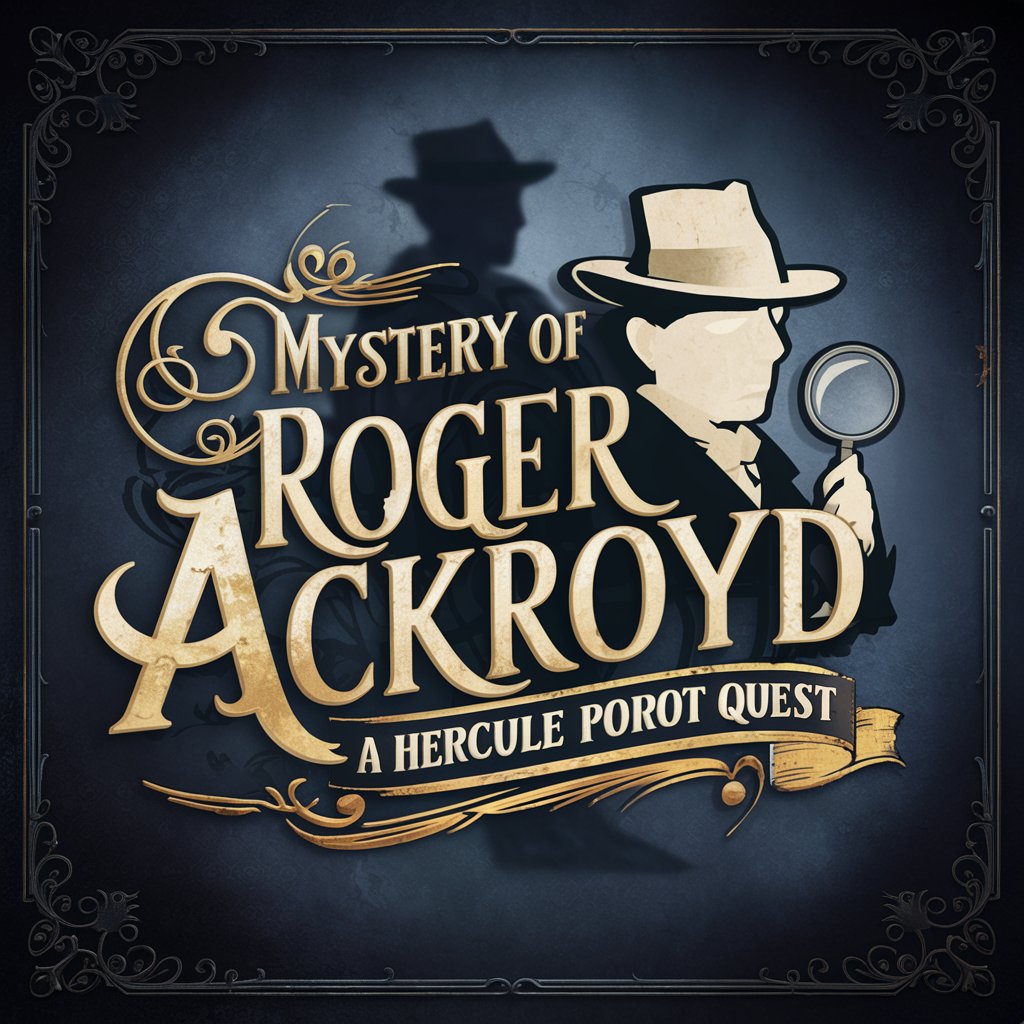
Industry Report Search Tool
Empowering Decisions with AI-Driven Insights

Presentation Helper
Transform ideas into presentations effortlessly.

Product Review Video Script Expert
Craft Engaging Review Scripts with AI

EdTech Social Strategist
Empowering EdTech with AI-driven Strategies

Auto-Light SEO AGENTS
Illuminate Your Online Presence with AI

コーチングGPT
Empowering Your Professional Journey

Frequently Asked Questions about Archaeology of Ancient Greece Tutor
What topics can the Archaeology of Ancient Greece Tutor cover?
It specializes in the material culture of ancient Greece, covering urban planning, architecture, sculpture, painting, ceramics, burial customs, religious and secular artifacts, epigraphy, and numismatics.
How can this tool assist with academic research?
It provides detailed explanations, chronological analysis, and insights into archaeological methodology, aiding in the development of research questions, thesis formulation, and source analysis.
Can the tutor help with identifying artifacts?
Yes, it can assist in artifact identification by analyzing characteristics, dating, and cultural significance within the context of ancient Greek archaeology.
Is this tool suitable for beginners in archaeology?
While designed for upper division and graduate students, beginners with a keen interest in ancient Greek archaeology may find it valuable for foundational knowledge.
How does the tool stay updated with current archaeological discoveries?
It leverages real-time search capabilities for the latest research, findings, and scholarly interpretations in the field of Greek archaeology.
